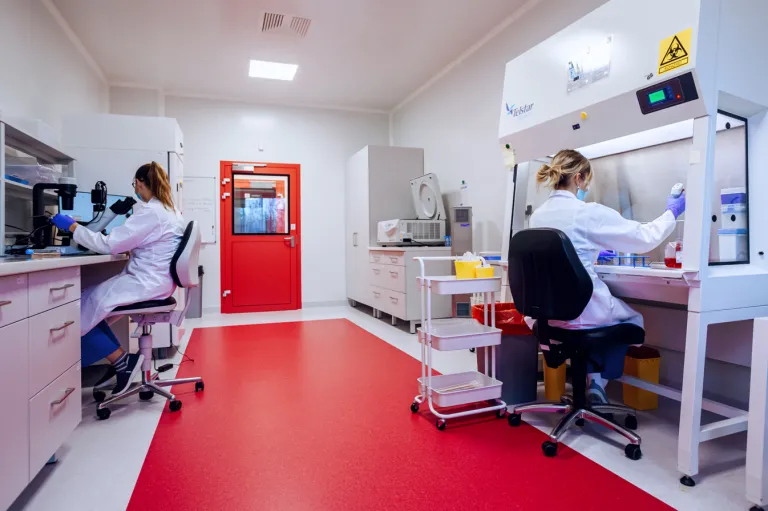Vaginal candidiasis in pregnancy is a very common intimate infection. The disease occurs when Candida albicans yeast multiplies in the reproductive organs. This is due to hormonal changes, but also improper hygiene habits. Vaginal mycosis in pregnancy requires immediate treatment.
An intimate infection in pregnancy should never be underestimated. The mother-to-be should always go to a gynecologist, who will perform the necessary tests and prescribe the appropriate pharmacotherapy. Also, do not on your own reach for medicines for vaginal fungus in pregnancy, which are available in pharmacies without a prescription.
What are the symptoms of vaginal candidiasis in pregnancy?
The symptoms of vaginal candidiasis in pregnancy are very characteristic. Initially, a woman may notice persistent itching and burning in the genital area and discharge, or abnormal vaginal discharge. It has an unpleasant odor (although odorless discharge happens) and a thick, lumpy consistency. Its color can be white, yellow or even greenish.
Some women also develop other symptoms. There may be redness and swelling of the labia, pain during intercourse and a feeling of dryness in the vagina. Some pregnant women report urinary complaints: painful pressure on the bladder and discomfort when urinating.
Causes of vaginal candidiasis in pregnancy
Vaginal candidiasis in pregnancy occurs because of hormonal changes that occur in the female body after conception. An increase in certain hormones causes the vagina’s pH to change and its mucous membrane to become bloodier. This condition promotes the disruption of the natural bacterial flora of the reproductive organs and the proliferation of Candida yeasts.
The appearance of intimate infection in pregnancy is favored:
- antibiotic therapy,
- weakening of immunity,
- sexual activity,
- vaginal irrigations,
- Wearing underwear made of artificial materials,
- Use of inappropriate intimate hygiene products,
- Inadequate intimate hygiene.
Inadequate intimate hygiene is understood to mean not only lack of intimate hygiene, but also over-washing with inappropriate products that disrupt the natural bacterial flora and pH of the vagina, that is, depriving the body of its natural defenses.
Treatment of vaginal candidiasis in pregnancy
A woman who observes symptoms of vaginal ringworm in pregnancy should immediately visit a gynecologist for testing and implementation of appropriate therapy. The specialist issues a prescription for antifungal agents safe for the developing fetus. Medications for ringworm in pregnancy are in the form of vaginal globules, and their main ingredient is nystatin. Supplementation of the natural bacterial microflora is also recommended. To do this, take a probiotic with strains of Lactobacillus bacteria.
Over-the-counter medications for vaginal candidiasis in pregnancy are also available in pharmacies. However, they should not be used without first consulting a doctor. In some cases, such measures can do more harm than good.
Risks of vaginal candidiasis in pregnancy
Untreated vaginal candidiasis in pregnancy carries serious health risks for the fetus. An intimate infection in a pregnant woman can lead to premature labor or miscarriage. In the case of natural childbirth, pathogens are often transferred from the mother to the newborn.
Prevention of vaginal candidiasis in pregnancy
Recurrent vaginal candidiasis in pregnancy is a serious health problem, so prevention is very important. One should:
- Wear airy and cotton underwear;
- Discontinue the use of sanitary pads;
- sleep without underwear;
- Take care of proper intimate hygiene;
- Use a good quality intimate hygiene gel;
- Use shielding drugs with antibiotic therapy.
Diet is also of great importance. It’s a good idea to avoid sugar and dairy products, and instead rely on fresh fruits and vegetables, nuts and whole grains.
Rate this article:









